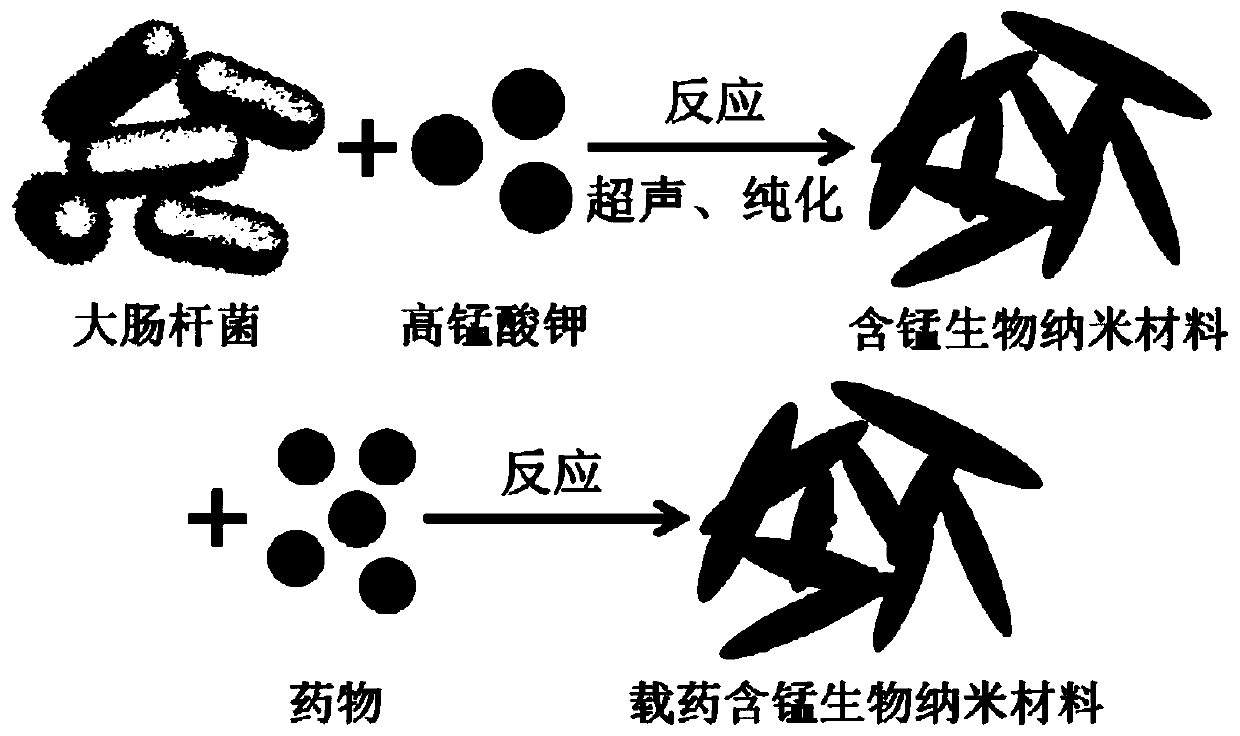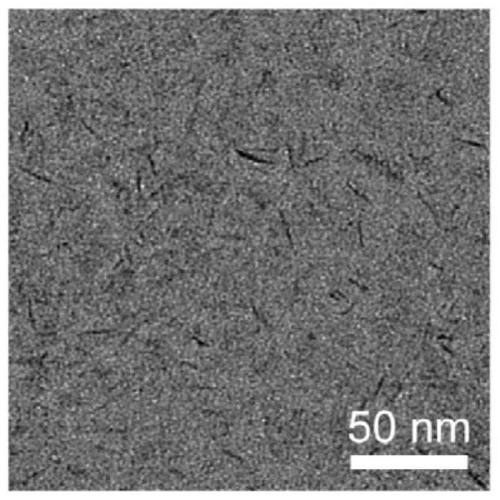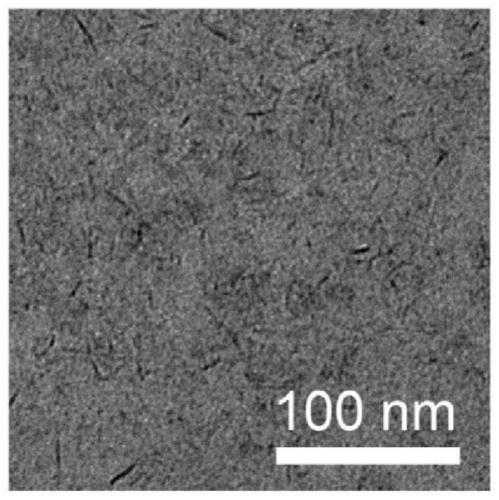Method for synthesizing manganese-containing nano-biomaterial and application of manganese-containing nano-biomaterial
A technology of biological nanomaterials and synthesis methods, applied in the field of biological nanomaterials, can solve problems such as multi-step complex synthesis steps, single properties, high synthesis costs, etc., and achieve enhanced therapeutic effects, simple preparation methods, and simple drug loading effects
- Summary
- Abstract
- Description
- Claims
- Application Information
AI Technical Summary
Problems solved by technology
Method used
Image
Examples
Embodiment 1
[0027] The synthesis of manganese-containing biological nanomaterials comprises the following steps:
[0028] (1) Escherichia coli is separated from the culture medium by centrifugation, and the centrifuged lower layer of Escherichia coli is resuspended with phosphate buffer;
[0029] (2) Escherichia coli and potassium permanganate solution (final concentration is 1mg mL –1 ) Shaker reaction for 5 minutes, followed by probe ultrasound for 15 minutes;
[0030] (3) Centrifuge the above reaction product, take the upper liquid, and perform dialysis with a dialysis bag with a molecular weight cut-off of 10 kDa to obtain pure manganese-containing bionanomaterials.
[0031] For a schematic diagram of the reaction, see figure 1 , the transmission electron microscope image of the obtained manganese-containing bionanomaterials is shown in figure 2 .
Embodiment 2
[0033] The synthesis of manganese-containing biological nanomaterials is basically the same as in Example 1, except that the Escherichia coli in step (1) is replaced with probiotics, yeast or erythrocytes.
Embodiment 3
[0035] The synthesis of manganese-containing biological nanomaterials is basically the same as in Example 1, except that step (2) is changed to a shaking table reaction for 30 minutes, followed by probe ultrasound for 60 minutes.
PUM
 Login to View More
Login to View More Abstract
Description
Claims
Application Information
 Login to View More
Login to View More - R&D
- Intellectual Property
- Life Sciences
- Materials
- Tech Scout
- Unparalleled Data Quality
- Higher Quality Content
- 60% Fewer Hallucinations
Browse by: Latest US Patents, China's latest patents, Technical Efficacy Thesaurus, Application Domain, Technology Topic, Popular Technical Reports.
© 2025 PatSnap. All rights reserved.Legal|Privacy policy|Modern Slavery Act Transparency Statement|Sitemap|About US| Contact US: help@patsnap.com



